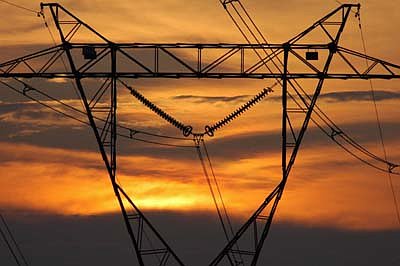
European Union leaders should clinch a deal in June on how to separate power production and distribution activities of utilities as part of an overhaul of the bloc's energy policy, the EU executive said on Tuesday. Presenting priorities for the first half of 2008, the European Commission said it also expected major progress on sharing out targets for reducing greenhouse gas emissions and increasing use of renewable energy for the period 2013-20. "It will be for the Slovenian presidency to make sure that the internal market for energy package will be decided on hopefully at the June European Council (summit)," Commission Vice-President Margot Wallstrom told a news conference in Slovenia, which has taken over the bloc's rotating presidency. The Commission will present on January 23 draft legislation on energy sector reform and on climate change, based on political agreement reached by EU leaders last March. The Brussels EU executive has already unveiled two options for separating the production and distribution activities of gas and electricity firms, known as unbundling. Its preferred option is to force companies to spin off the transmission networks. Option two would allow utilities to maintain ownership of their networks but only if an "independent system operator" ran them under strict regulatory supervision. Both options would apply throughout the 27-nation bloc, to both private and publicly owned companies, and firms operating in but not based in the EU. France and Germany, eager to protect national energy champions, have led opposition to the proposals and are expected to put forward an alternative this month. SHARING EFFORT Wallstrom promised fair burden-sharing for EU members in other areas of the reform program which calls for emissions of greenhouse gases, such as CO2, to be cut by 20 percent by 2020, or even 30 percent if major nations follow suit. Under the scheme, initially endorsed by EU leaders last March, 20 percent of the bloc's energy should be produced from renewable fuels by 2020. Emissions of carbon dioxide and other gases are widely blamed for global warming. "The Commission is consulting member states attentively of course in order to come to a fair and balanced system of effort-sharing," Wallstrom said. She said Brussels was keen to keep EU industries competitive and the reforms should be seen as an opportunity for Europe to take a global lead in clean energy technology. The European Parliament, which will negotiate with EU governments the final shape of the legislation, has voted to seek to seek ambitious targets for renewable energy. It agreed in September that to give the legislation teeth, it should contain binding renewable energy targets for particular sectors -- electricity, heating and transport -- rather than just a general goal. The Commission's forthcoming proposals for national targets for renewable energy production are expected to be a major sticking point in negotiations, as some countries are certain to fight for small quotas. |
|
|
Reuters |